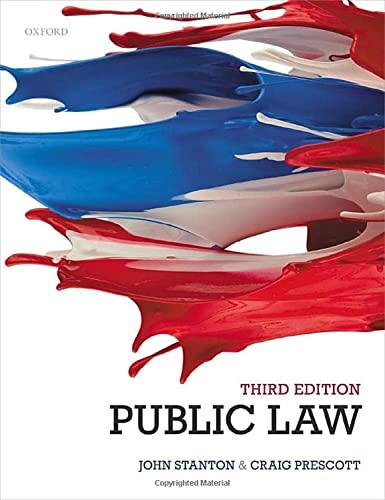Question
On September 5 Robert wrote to Cameron offering to sell 50 metric tons of wheat at $250 per metric tonne. On September 7 Cameron posted
On September 5 Robert wrote to Cameron offering to sell 50 metric tons of wheat at $250 per metric tonne. On September 7 Cameron posted a reply in which he accepted Robert's offer but added that if he did not hear to the contrary he would assume that the price included delivery to his (Cameron's) warehouse. The following morning, before Cameron's letter arrived at Robert's office, Robert read a posting on the internet which stated that the price of wheat was about to fall and he immediately sent an email to Cameron stating 'our price of $250 includes delivery'.
On receiving Robert's email at 10am on September 8, Cameron posted a letter to Robert confirming his acceptance of Robert's terms. By mid-day, however, Cameron also saw the posting on the internet which indicated that wheat prices were about to fall and, having considered the matter, sent an email to Robert stating 'I do not accept your offer of wheat'.
The price of wheat fell to $230 per metric tonne and Cameron refuses to accept any wheat from Robert.
Question 1: Advise Robert regarding the above.
- __________________ A law that provides punishment for an act that was not defined as a crime when the act was committed or that increases the penalty for a crime committed prior to the enactment of the statute.
- __________________ In contrast to written law, this type of law consists of legally binding rules derived from judicial decisions, customs, and traditions. Broadly defined, it refers to the legal system that began in England and was followed in the United States.
- __________________ A serious offense such as murder, armed robbery, or rape.
- __________________ A punishment theory and a sentencing goal, generally implemented by incarcerating offenders to prevent them from committing any other crimes.
- __________________ A system in which the accused is presumed guilty and must prove his or her innocence.
- __________________ The lawful exercise of authority, and the geographic area in which authority may be exercised.
- __________________ The power of juries to ignore the evidence and acquit, even in the face of strong evidence supporting a conviction.
- __________________ Acts morally wrong in themselves, such as rape, murder, or robbery.
- __________________ Acts that are wrong because they are prohibited by legislation, although they may not be recognized by most people as morally wrong.
- __________________ A crime that is less serious, punishable by a fine, probation, or a short confinement in a jail.
Required to Fill the blank spaces
Step by Step Solution
There are 3 Steps involved in it
Step: 1

Get Instant Access to Expert-Tailored Solutions
See step-by-step solutions with expert insights and AI powered tools for academic success
Step: 2

Step: 3

Ace Your Homework with AI
Get the answers you need in no time with our AI-driven, step-by-step assistance
Get Started


